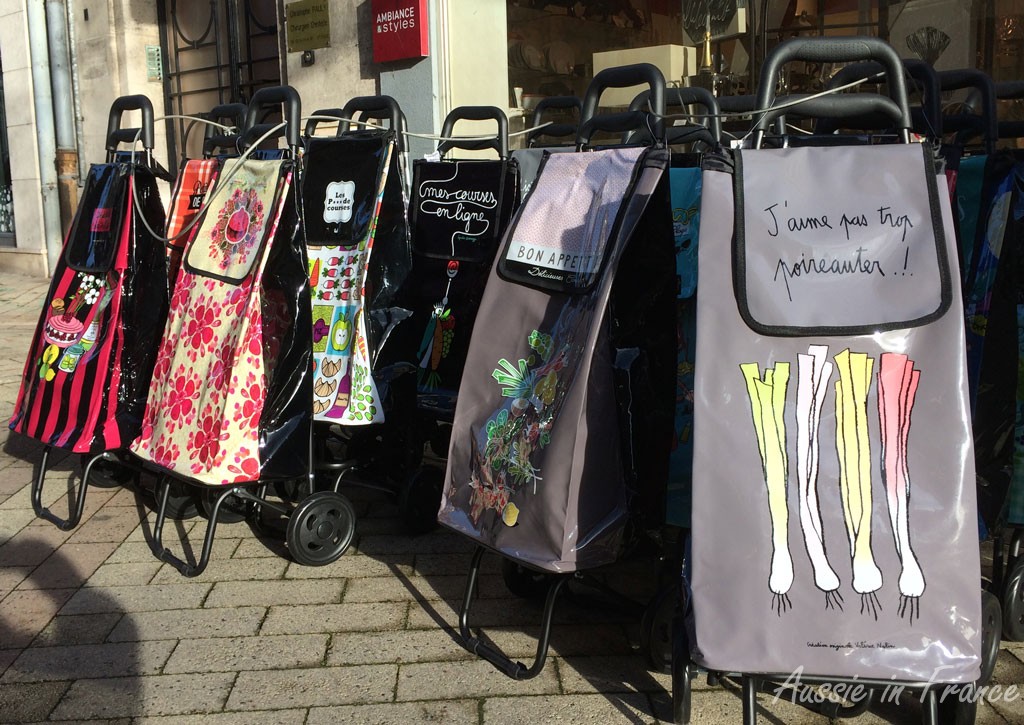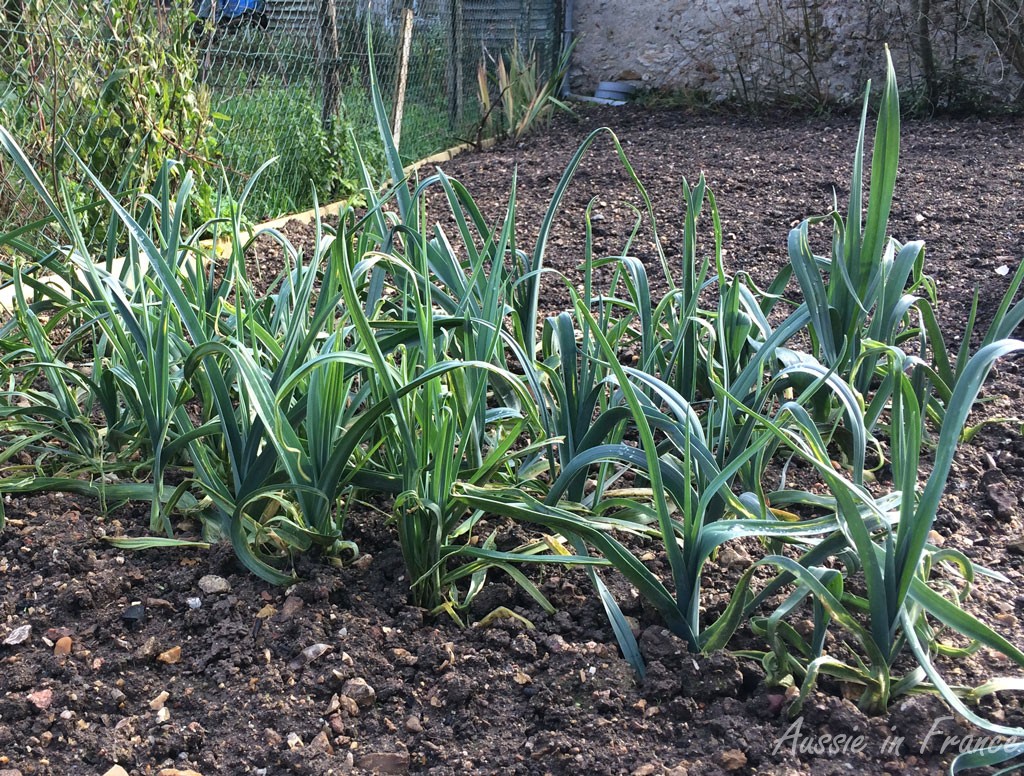I was so excited at the market last Saturday when I saw this wonderful shopping trolley. In response to my post on navets (turnips), a reader suggested several expressions including arrête de poireauter from poireau meaning leek. And here is a wonderful example: j’aime pas trop poireauter, which means I don’t like waiting around, very appropriate for the type of trolley that most people take to the market where you often have to wait in a queue.
So what is the connection with leeks which, incidentally, is the national emblem of Wales ?
It was in 1866 that planter son poireau meaning “to plant one’s leek” was first recorded. Although poireau means the male member (I’m using a euphemism to avoid attracting unwanted spam), the expression has no erotic connotations. It simply meant “waiting for a long time”, based on the image of the leek sticking up straight from the ground, and the influence of the expression rester planter (stay planted) meaning immobile or unable to move, like our English expression, “he planted himself next to her”.
About ten years later, the expression faire le poireau appeared as an extension to the one above and with exactly the same meaning. The verbal form – poireauter – was soon formed.
Now I don’t want to dispute this explanation given by expressio.fr, but I’d like to offer my own personal interpretation. We planted leeks this year for the first time. I grew them from seedlings and we then replanted them. They do not stand up straight as you can see from the photo. In fact they are very floppy. They do, however, seem to be taking absolutely ages to grow so maybe that is the origin of poireauter. We certainly seem to be hanging around waiting for them!
An expression mentioned by another reader is qu’il s’occupe de ses oignons meaning that he should mind his own business. I dropped in again at expression.fr which gives two explanations. I prefer the second one because it’s a little more elegant.
In the centre of France, one of the signs of a woman’s independence was her right to cultivate a corner of the garden where she grew onions to sell on the market and make some money of her own. Men were often heard to say to women who wanted to stick their noses in their husbands’ business occupe-toi de tes oignons (go look after your onions) or ce n’est pas tes oignons (they’re not your onions). Considering that you only get one onion for each little bulb you plant, I don’t think they could have made much money …



Go look after your onions…. that’s a new expression to me!
The women may have been growing from seed — allowing a couple of onions to go to seed and sowing the resulting seeds. The trick would have been not to use the seeds of onions that bolted, but waiting for the appropriate time. By sowing seeds they could have slowly improved their onions over time too if they were observant and good gardeners.
That’s the secret, then. I grew my leeks from seed. Jean Michel thought they looked very scrawny. I intend to dig the first one up this weekend. I’m glad I don’t have to depend on onion-growing to earn pocket money …
I believe they are labour-intensive to grow and require constant earthing up. But yours look very healthy and I’m sure they will taste delicious and be worth your efforts. Mr Nextdoor used to grow them, but as he didn’t them he gave them all away.
Thank you for a new and interesting verb.
I’m not sure about this extraordinary idea of letting women have their own little garden to make pin money. It can only lead to them demanding education, equality and driving licences. Mark my words, no good can come of it. 😀
As you no doubt know, French women were among the last to gain the vote and even get to see the family income tax declaration. The onions were revolutionary!